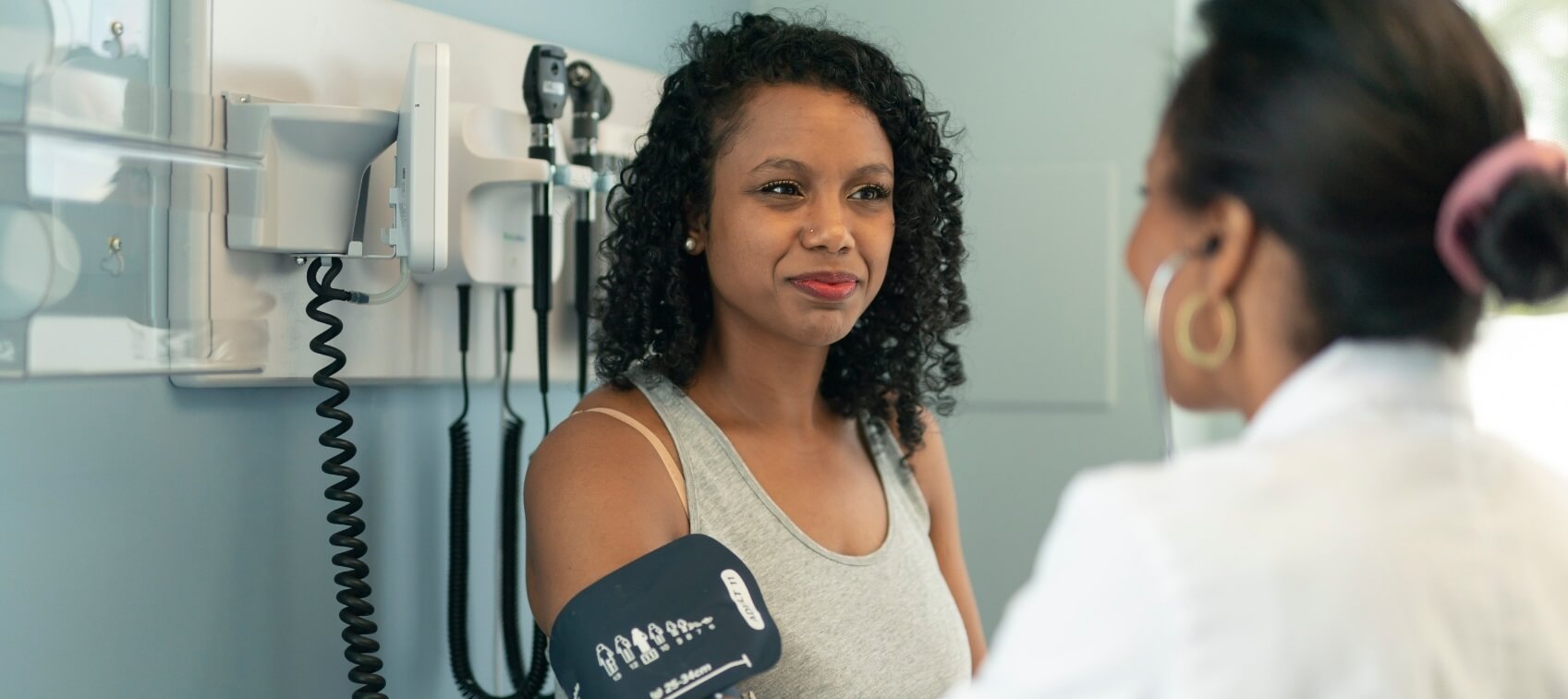
Heart disease is the number one killer of women—outpacing breast cancer and all other cancers combined. Yet, it doesn’t get nearly as much attention. That’s partly because one of the major risk factors for cardiovascular disease in women is largely silent: hypertension (also known as high blood pressure).
But while it’s largely silent, it’s potentially deadly. At age 50, life expectancy is approximately five years shorter for hypertensive women compared with nonhypertensive women.
In younger years, hypertension is primarily a male problem–but after age 65, the switch flips and women become more at risk of high blood pressure than men. In fact, 58% of women between the ages of 65 and 74 have hypertension.
In addition to the natural stiffening of the vessel walls thanks to the aging process, the added susceptibility for hypertension creeps in for women after menopause. Natural estrogen and progesterone act as vasodilators that help to protect our cardiovascular system from oxidative and inflammatory damage. As a result, when these hormones decrease, our blood pressure and cardiovascular risk increases.
How Women Can Prevent Hypertension
The good news for women with hypertension is that there are many naturopathic ways to help lower and even prevent high blood pressure. Here’s what I recommend to my patients for naturopathic blood pressure control.
Know Your Numbers
Ask your doctor what your blood pressure reading is at each visit so you know if there’s an upward trend. You can also take your blood pressure reading at a self-serve kiosk at your local pharmacy or purchase an automatic cuff to take your blood pressure in the comfort of your home.
Request Additional Testing
During menopause is the perfect time to have a full-body evaluation and take a deeper dive into your cardiovascular system. The more in-depth cardiovascular markers I recommend to my patients, especially if they have hypertension, include:
- Advanced cholesterol panel with a lipoprotein particle profile
- Omega-3 and Omega-6 fatty acid test
- CRP and ESR
- Homocysteine
- Lipoprotein(a)
- Fibrinogen
- Fasting insulin
- Fasting glucose
- Hemoglobin A1C
- Blood chemistry panel (looks at liver and kidney function)
- Iron panel
- Optimize Your Weight
Eating a heart-healthy diet can help you shed those extra pounds and improve your blood pressure, both of which are important for cardiovascular health. This means increasing the amount of fiber from fruits and veggies. Plus, you want tolimit or eliminate simple carbohydrates, trans fats, and refined sugars in your diet.
Get Moving
Regular exercise improves endothelial function and supports healthy blood pressure. I encourage any type of movement you enjoy doing regularly such as walking, Pilates workouts, yoga, weightlifting (also beneficial for bone health), swimming, biking, dancing, jogging, etc.
Avoid Smoking and Minimize Alcohol
Smoking and alcohol have a negative effect on your blood pressure. And they’re both independent risk factors for cardiovascular disease. If you smoke, I highly recommend getting support to quit ASAP. And consider cutting out alcohol. Not only will your blood pressure numbers improve, but you’ll also sleep better and have more energy as well!
Watch Your Medications
Over-the-counter painkillers such as ibuprofen, acetaminophen, and naproxen, decongestants, migraine medication, and oral contraceptive pills have been known to cause increases in blood pressure. Seek alternative solutions for pain and birth control if you have hypertension, and always try to address the root cause of any condition for which you’re taking daily medication.
Rule Out Sleep Apnea
Sleep apnea can interrupt your breathing while you are asleep, leading to a sudden drop in your blood oxygen level. Not only is the lack of oxygen problematic for your whole body, it causes an increase in blood pressure and puts extra stress on your cardiovascular system.
Take Heart-Healthy Supplements
In addition to a high-quality multivitamin and heart-healthy omega-3 fatty acids, you can’t beat cardiologist Dr. Stephen Sinatra’s tried-and-true combination of nutrients—CoQ10, D-Ribose, magnesium, and L-carnitine. Together, these nutrients support the heart muscle and supply energy to the heart.
Reduce Stress
Women are more sensitive to the effects of stress after menopause. This is because estrogen and progesterone help to buffer our body's perception of stress when our cortisol level rises. So, when estrogen and progesterone decrease, our tolerance for stressful situations does, too!
This means it’s extra important to give yourself the TLC you deserve by carving out time for yourself every day for meditation, deep breathing, a relaxing bath, getting a massage, earthing, and more.
Clear Toxic Emotions
Don’t hold onto emotional garbage. Let go of negative energy that isn’t serving you. Make it a regular practice to forgive yourself and others and clear up misunderstandings between you and your loved ones. A great way to do this is through dinnertime sharing. Each person shares the best part of their day, the most challenging part, and three things they are grateful for. If you live alone, call a friend or family member and plan a regular time to do this sharing exchange. You’ll be amazed by how much lighter you feel emotionally and how you increase your gratitude.
For some women, blood pressure medication may be necessary and helpful. However, these medications don’t come without side effects. So, I always encourage my patients to incorporate naturopathic ways to lower their blood pressure first. Then, if needed, prescription medications can be added, starting low and slowly and increasing it to find their individual therapeutic dose.
References


